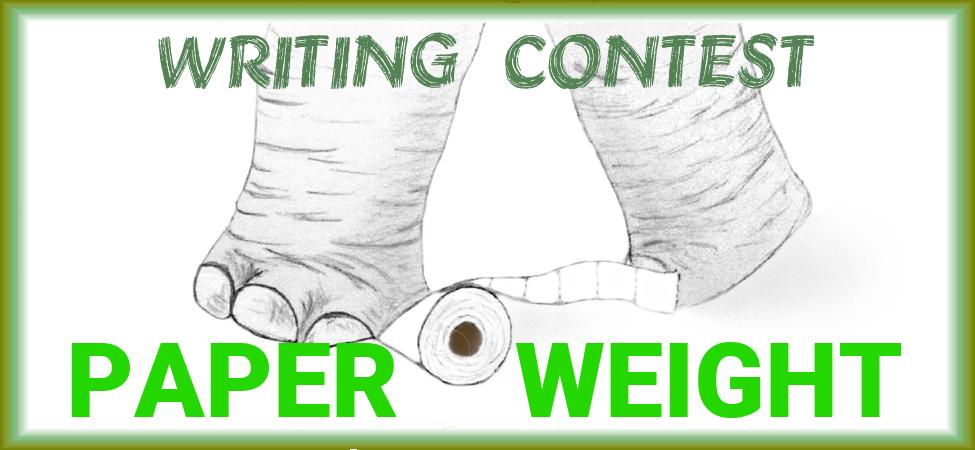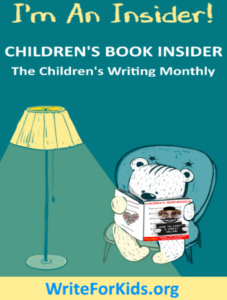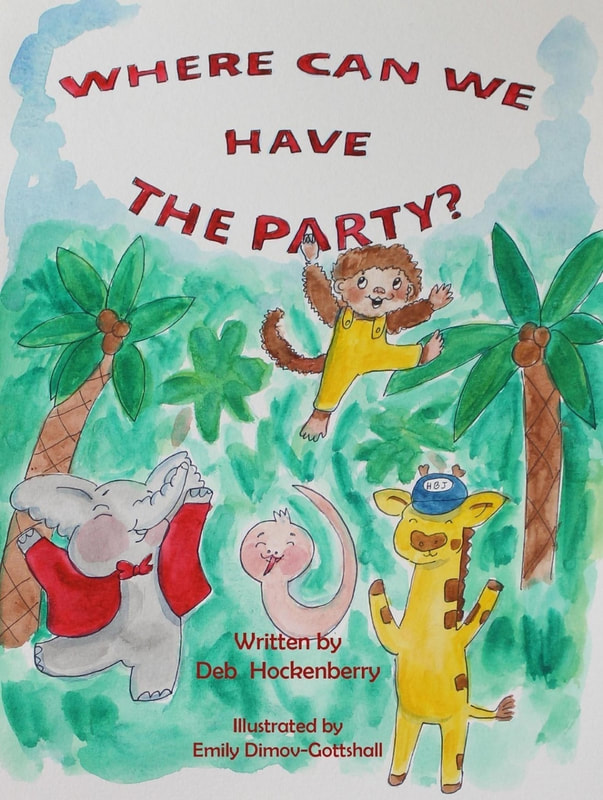https://writeforkids.org/blog/rejection/
|
We've all received those form rejection letters from publishers. If there's one thing in this world I hate it's those form letters. A little more helpful are the rejection letters that have a handwritten note from the publisher or editor explaining the rejection. How did you survive these letters? In her article, Jane Choate explains different ways you can survive those dreaded letters. Click on the link below to see what she has to say. This article is being shared with permission by the CBI Clubhouse.
https://writeforkids.org/blog/rejection/
0 Comments
Why should you enter contests? In this article, I list ten benefits you get from entering. I also provide some links to children’s contests.
Entering Contests Improves Your Writing That’s right. You get great feedback from the judges even if it’s bad. This helps you to improve your writing for future contests or publication. Motivates You to Keep Writing Have you ever been at the point where you want to give up completely? Sure, you have. Who among us hasn’t? Entering a contest helps you to have that ‘I’m going to do this and win’ attitude. This helps you to keep writing. Getting Feedback You can get invaluable feedback from the judges that improves your work. See number #1. Your Work Will Be Seen You can count on this. Not only will your work be seen by the contest host and judges, but others too. I’m speaking from personal experience. Many times, people who have won or placed in a contest are published in the host’s publication newsletter. If this is the case, you’ll be notified and asked for permission for them to print your story. You Gain Writing Experience Yes, not only do you gain the all-important feedback, but you also gain experience writing against a deadline, and submitting. Placing or Winning This is so important to an author. Placing or winning in a contest boosts an author’s ego, which is so important for ‘those kind of days’. It helps him to keep on writing! Bragging Rights You can brag about your win or your placement all you want! Put it on the ‘Media Page’ of your website and put it on your ‘Sell Sheet’. You can talk about your win, your prize, or show off your digibadge in your newsletter. Heck, you could even put it in your email signature. The ideas are endless here! As you can see from this article, there are seven ways you can benefit from entering a writing contest. For your convenience, I’ve listed some links to children’s writer’s contests here. Kidlit 411 Story Quest Books Ozark Creative Writers Institute of Children’s Literature What in the world? You’ve just finished your latest and (hopefully) your greatest story. You’ve let your friends read it and, of course, they liked it. They’re your friends. You also read it to Rex, asleep in the corner of your office. He gave a yawn of approval, too. So, you proofread your manuscript and proofread some more. Is the punctuation okay? Check. Does each word move the story along? Check. What’s wrong with it? Try reading it to Rex again and listen to your words. Forget about your friends and family, since they’re just going to tell you what you want to hear. There. Hear that? Read that section again. There’s no life in your character, nor is there an appropriate description in the narrative. You have to write visually and bring your book to life. What is writing visually? It’s something we’ve all heard before. Show, don’t tell. For those of you who haven’t heard those particular words, here’s my definition: It’s when you reader can put himself/herself in your book. You should engage all five senses to do this. Let your readers feel Jason punch Harry without warning. Let everyone see Mary bend over and smell those fragrant roses. Have your characters talk naturally. Describing in a few words what they feel (emotionally), see, question, etc. Also, people aren’t robots in real life. When was the last time you saw someone talking with expression never changing or not talking with their hands? Maybe this person held their hair down as the wind blew? For instance, Keira left school. “I’m going to the mall,” she said to Sasha. Here’s the same sentence brought to life. Keira raced down the hall, stopping when she saw Sasha putting her books in the locker. “I’m going to the mall after school,” she puffed. “Wanna come?” “Sure! Wait a sec until I fix my hair. Maybe that new guy will be there.” Which description would you rather have in your manuscript? Which one shows more instead of tells? That’s right. This all boils down to ‘show, not tell’. Take a look at these sentences: The three young people climbed the hill. Okay. Now read this: As the three friends climbed, they swatted flies away from their faces. Bees buzzed around them while low-hanging tree branches smacked them in the face. Which sentence shows more, thus giving it life? The trick is to give your characters some character not only in the dialogue but in the narrative as well. In the narrative, your reader can see them struggling up that hill. In dialogue they can see, feel the emotions of the girls and relate to them. I’ve found some books, blogs, or websites that will help you with this. BOOKS Word Magic for Writers You Can Write Children’s Books Picture Writing Here’s a video by The Three Minute Writing Teacher that will help you along the way to bring your book to life! PAPER and WEIGHT do not have to be the
focal point(s) of the story, but they should be so important that the story would not make sense without them. USAGE: You may use them together (PAPERWEIGHT) or separate (PAPER and WEIGHT). Any kind of PAPER is acceptable: a piece of paper, a paper photo, origami made from paper, a newspaper, the paper used for drawing, printing, or writing, toilet paper, etc. Also, any kind of WEIGHT is acceptable: the weight of a dumbbell, the weight of a snow globe, gaining or losing weight, the weight of an animal, a heavyweight or lightweight boxer, and so on. The use of each theme word must be obvious, and it must be required for the story to work. EXAMPLE: If the theme words were DOOR and BELL-When the epic church bell rang, it flew out of the belfry and landed in the street, causing the ground to shake and a nearby bridge to collapse, completely disconnecting two small towns and causing the main part of the story to take place. That might be the only time the BELL existed in the story, but if you took the bell out, the rest of the story wouldn't work. DOOR would have to be just as vital, even if it's not what the story is about. PRIZES 1st Place - $100 2nd Place - $75 3rd Place - $50 Up to two Judges' Choice Up to three Honorable Mention For more information about awards, click here. . SUBMISSION DATES E-mail submissions will be accepted from July 1, 2023 until 11:59 PM (CDT) on August 31st, 2023. . ENTRY FEE $10.00 USD; multiple entries allowed. -- SPECIAL -- Two for the price of one, per author. To qualify, both stories must be submitted in same email. No quantity limit for special rate. Entry Fee must be paid from contest website. . WINNERS Winners will be announced and awards/certificates will be mailed on or before December 5th, 2023. First Place will also be listed here. . GUIDELINES Fiction or Nonfiction Any subject / Any genre (No erotica, gore, or poetry.) 2000 word limit, not including title Must be a complete story. (Beginning, middle, end.) All entries must be UNPUBLISHED* as of submission deadline. . ANONYMOUS SUBMISSION RULES No identifying author information allowed on the story pages. . FORMATTING Entries should be written in American English. Font: size 12, easy to read, use curly quotes. Double-spaced. One inch margins. No special "front page only" formatting is required. Top right of every page: Title / page # EXAMPLE: The Last Tadpole / 1 . COVER PAGES Each story should have a separate cover page with the following information: Author Name Complete Mailing Address Phone Number Email Address Cash Award Preference (USPS Money Order or PayPal) PayPal address (if preferred for Cash Award, or if winner is outside USA) Story Title Fiction / Nonfiction # of words in story First full line of story . Polish your story with this check list: Use Story Checks that is located on KidzTales Resources page. . * UNPUBLISHED Not published in a book, ebook, audio, website, mass email, or other format that is publicly shared, including online. (This does not include items shared for critique in private writing groups. In fact, we encourage critique before submission.) . . Questions about the contest? Email Renee' at [email protected]. . |
Archives
June 2024
|





 RSS Feed
RSS Feed
